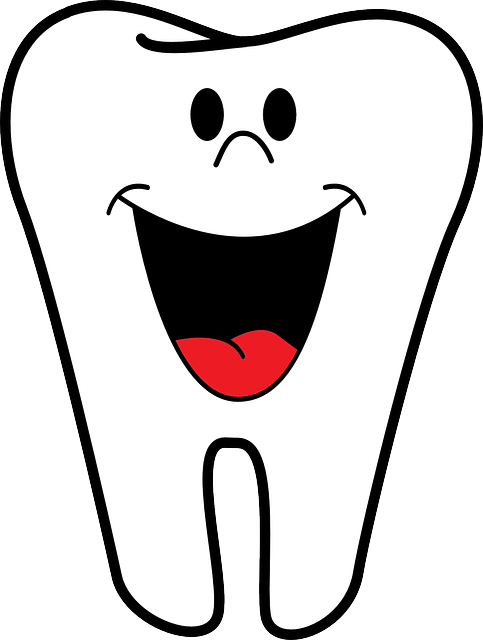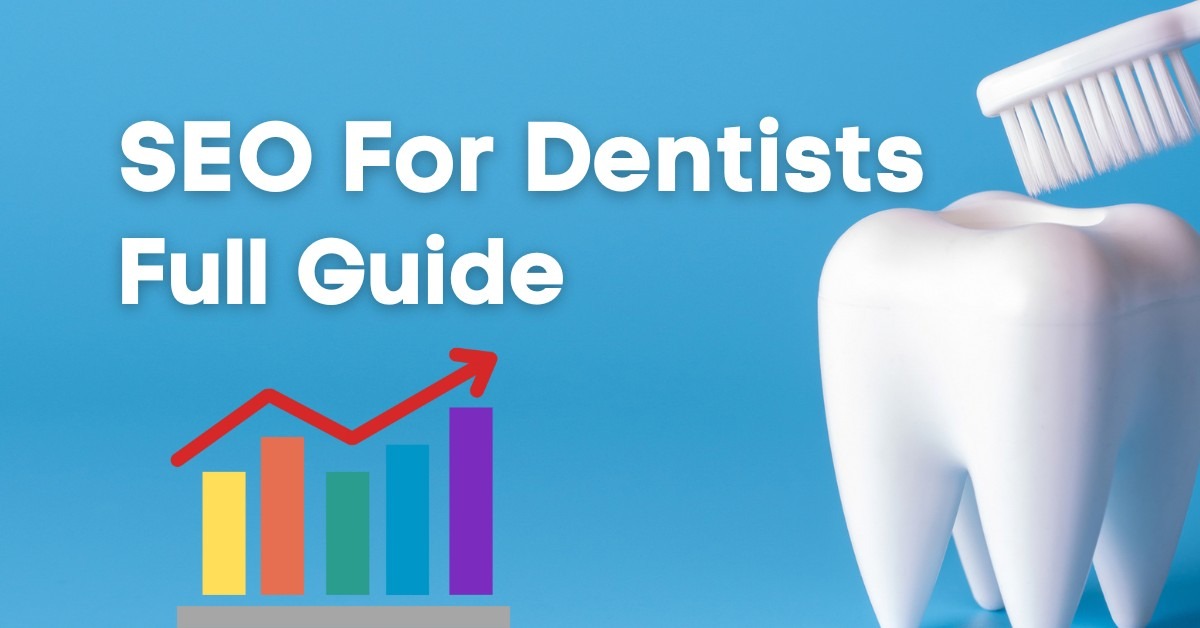Ensuring the online visibility of your dental practice is crucial for attracting new patients and growing your business. This comprehensive guide will walk you through the essential components of SEO for dentists, explore why it is vital for your practice, and provide actionable strategies for implementing effective SEO techniques.
From keyword research and on-page optimization to local SEO and mobile optimization, we will delve into the key components that will help your dental practice rank higher in search engine results. We will discuss common mistakes to avoid and the timeline for seeing results from your SEO efforts.
By the end of this guide, you will have a clear understanding of how to leverage SEO to enhance your online presence and attract more patients to your practice. So, let’s dive into the world of SEO for dentists and unlock the potential for the growth of your dental practice.
Highlights
- SEO is essential for dentists to improve their online visibility and attract more potential patients.
- Optimizing a dental website requires keyword research, on-page and off-page optimization, local SEO, and mobile optimization.
- Avoid common SEO mistakes like keyword stuffing and duplicate content, and utilize social media to enhance your online presence and attract more patients.
What Is SEO for Dentists?
SEO for dentists refers to the specialized process of optimizing a dental practice’s website to rank higher in search engine results and attract more prospective patients.
This involves using specific dental SEO strategies that focus on improving the website’s visibility and attracting potential patients who are actively searching for dental services. Through effective dental website SEO, a practice can enhance its online presence, attract more traffic, and ultimately convert visitors into new patients.
By optimizing website content, utilizing relevant keywords, and improving the site’s user experience, dental SEO aims to place practice at the forefront of search engine results, increasing its visibility and credibility within the digital landscape.

Why Is SEO Important for Dentists?
Dental search engine optimization is crucial for dentists as it enables their dental practice to rank higher in search engine results, leading to increased online visibility and attracting more patients.
By implementing effective dental SEO services, dentists can optimize their website content, meta descriptions, and keywords to improve their online presence. A well-defined dental SEO strategy can help them appear in the top search results when potential patients are looking for dental services, thus increasing the chances of acquiring new clients.
Leveraging SEO techniques can also aid in building trust and credibility among online visitors, which is essential for a successful dental practice.
What Are the Key Components of SEO for Dentists?
The key components of SEO for dentists encompass various strategies including keyword research, on-page and off-page optimization, local SEO efforts, and mobile optimization to boost search engine results pages.
Keyword research plays a crucial role in optimizing a dental website for search engines. It involves identifying the most relevant and high-traffic keywords related to dentistry, oral health, and specific dental services.
On-page optimization focuses on enhancing the website’s content, meta tags, and internal linking structure to make it more search engine friendly.
Off-page optimization involves building high-quality backlinks, online reputation management, and social media presence to boost the website’s authority and credibility.
Local dental SEO efforts target local audiences, optimizing the website for geographically specific searches and leveraging online directories and reviews.
Additionally, mobile optimization ensures that the website is accessible and user-friendly on mobile devices, catering to the growing number of users accessing the internet through smartphones and tablets.
Keyword Research
Keyword research is a fundamental aspect of dental SEO that involves identifying relevant keywords and search queries used by potential patients to optimize the dental practice’s website for improved search engine rankings.
By conducting thorough keyword research, dental practices can gain valuable insights into the specific terms and phrases potential patients are using to find dental services online. Understanding these relevant keywords and search queries allows dentists to tailor their website content and meta tags to ensure that it aligns with the language and intent of their target audience.
On-Page Optimization
On-page optimization involves optimizing various elements within a dental practice’s website such as content, HTML tags, and meta descriptions to improve its visibility and relevance for search engines and website visitors.
One crucial aspect of on-page optimization for a dental practice’s website is the strategic placement of relevant keywords within the content. By crafting informative and engaging content centered around dental services, patient education, and practice updates, the website can attract the attention of potential patients and establish credibility within the field.
Leveraging HTML tags such as title tags, header tags, and image alt attributes holds significant importance as they provide structure and context to the website’s content, facilitating better comprehension by search engine crawlers. Equally essential are meta descriptions, which serve as concise summaries displayed on search engine results, influencing the click-through rate and user engagement with the website.
Off-Page Optimization
Off-page optimization focuses on external factors such as backlinks, online reviews, and directory listings to improve a dental practice’s website authority and credibility for higher search engine rankings.
By harnessing SEO strategies that emphasize off-page optimization, dental practices can significantly enhance their online visibility and attract more potential patients. Backlinks from reputable and related websites play a crucial role in signaling the value and relevance of the dental website to search engines. It is also important to clean up bad backlinks periodically.
Positive online reviews serve as social proof and can influence potential patients’ decisions while directory listings ensure consistent business information across various platforms, enhancing the practice’s online credibility and trustworthiness.

Local SEO
Local SEO is crucial for dentists as it focuses on optimizing the dental practice’s online presence to attract local searches, gain visibility in local business listings, and enhance the Google Business Profile for local search engine results.
Implementing effective local SEO strategies enables dental practices to reach potential patients within their geographical area. By incorporating location-based keywords and creating locally relevant content, dentists can improve their rankings in local search results and stand out among other local businesses.
Optimizing the Google Business Profile with accurate contact information, opening hours, and compelling descriptions increases the likelihood of being featured prominently in local map packs, significantly boosting the practice’s online visibility to potential patients in the vicinity.
Mobile Optimization
Mobile optimization in dental SEO involves enhancing the dental practice’s website for mobile devices to attract more traffic, improve user experience, and cater to the increasing number of website visitors using mobile platforms.
To stay competitive in today’s digital landscape, dental SEO work must prioritize mobile optimization. With the ever-growing reliance on smartphones and tablets, it’s essential for dental practices to ensure that their websites are not only visually appealing but also fully functional on mobile devices. This approach goes beyond responsive design; it encompasses seamless navigation, fast loading speed, and easy access to essential information.
By focusing on mobile optimization, dental practices can drive more traffic to their websites and deliver a positive browsing experience for their visitors.

How to Implement SEO for Dentists?
Implementing SEO for dentists involves developing a comprehensive dental SEO strategy that focuses on optimizing the dental practice’s website, improving search engine rankings, and leveraging SEO marketing tactics to attract more potential patients.
To begin with, an effective dental SEO strategy starts with thorough keyword research to identify the most relevant and high-traffic keywords in the dental industry. This involves targeting keywords such as ‘dentist near me,’ ‘dental services,’ and ‘teeth whitening,’ among others.
Once these keywords are identified, they are strategically integrated into the website’s content, meta tags, and headings, ensuring that the site is more likely to appear in prominent positions in Google search results.
An essential aspect of a successful dental SEO strategy is enhancing the practice’s online presence by creating and optimizing local business listings, such as Google My Business. This not only increases visibility in local search results but also facilitates the establishment of credibility and trust with potential patients.
It’s crucial to engage in ongoing analysis and monitoring of the website’s performance, making adjustments to the SEO marketing tactics as necessary to continuously boost search engine positions and attract more patients to the dental practice.
Small businesses can greatly benefit from clear-cut SEO strategies by capturing small segments of their market.
Optimize Your Website
Optimizing the dental practice’s website involves implementing SEO efforts, leveraging Google Analytics data, and potentially collaborating with a dental SEO company to enhance its online visibility and performance.
SEO efforts play a crucial role in ensuring the dental practice website ranks higher on search engine result pages, thereby attracting more potential patients. By strategically incorporating relevant keywords, optimizing meta tags, and improving website structure, the website can attain better organic traffic.
Analyzing Google Analytics data provides valuable insights into user behavior, allowing for targeted enhancements in content, design, and user experience. Engaging a specialized dental SEO company can further amplify the website’s optimization efforts, offering industry-specific expertise and comprehensive strategies tailored to the dental market.
Create High-Quality Content
Creating high-quality content is essential for dental practice SEO, as it not only improves the website’s relevance but also establishes the dental practice as an authoritative source within the dental industry through informative blog posts and relevant content.
High-quality content not only helps boost the practice’s online visibility but also plays a crucial role in engaging and educating patients. By consistently offering valuable and informative material, dental practices can position themselves as trusted resources in their field, gaining the trust of potential patients and strengthening their reputation.
Search engines prioritize websites that consistently produce relevant, authoritative, and informative content. This can lead to improved search engine rankings, increased organic traffic, and ultimately, a higher influx of potential patients seeking dental services.
Utilize Local SEO Strategies
Leveraging local SEO strategies is crucial for dentists to ensure visibility in local search results, targeting local keywords, and aiming for placement on the first page of search engine results for maximum exposure to potential patients.
By implementing local SEO techniques, dentists can optimize their online presence to attract nearby clients actively seeking dental services. Through strategic use of local keywords, dental practices can enhance their digital visibility and stand out amidst local competition, ultimately driving more foot traffic and appointments. This approach also fosters stronger community engagement, as it facilitates meaningful connections with local residents in need of dental care.

Build Backlinks
Building backlinks is an essential aspect of dental SEO, as it contributes to improving dental website rankings, enhancing credibility, and potentially collaborating with a good dental SEO agency to rank dental websites on search engines.
By creating quality backlinks from reputable dental websites, a dental practice can signal its relevance and authority within the industry to search engines. This, in turn, can positively impact the website’s rankings, making it more visible to potential patients seeking dental services online.
Establishing a strong and diverse backlink profile strengthens the credibility of the dental website, making it a trusted source of information and services in the eyes of both search engines and visitors.
When collaborating with a reputable dental SEO agency, the strategy can be focused on acquiring relevant and quality backlinks, improving the website’s overall performance in search engine result pages.

Use Social Media
Utilizing social media platforms is an integral part of dental SEO, as it contributes to improving online visibility, attracting more traffic, and engaging with the dental practice’s online community through relevant and informative content.
Social media provides an effective channel for dental practices to showcase their expertise, share educational content, and interact with patients in real time, thereby enhancing their online visibility. Leveraging platforms like Facebook, Instagram, and Twitter can significantly increase the reach of the practice, attracting more traffic to their website and ultimately converting visitors into potential patients.
Social media engagement fosters a sense of community among patients and potential clients, allowing them to connect with the practice on a more personal level. This direct interaction not only strengthens patient relationships but also promotes online visibility by increasing the practice’s exposure within the community.
What Are the Common Mistakes to Avoid in SEO for Dentists?
There are several common mistakes in dental SEO that practices should avoid, including overlooking the dental SEO cost implications and neglecting the optimization of Google Maps listings, which can hinder their online visibility and patient acquisition efforts.
Effective dental SEO requires a comprehensive approach that considers both technical and content-related aspects. Neglecting proper keyword research and implementation can lead to missed opportunities for targeting valuable search terms, impacting the practice’s online visibility.
Inadequate website optimization for local search queries can directly affect the ranking on Google Maps, potentially limiting the clinic’s exposure to potential patients in the nearby area. Recognizing and addressing these common pitfalls in dental SEO is essential for maintaining a competitive edge and maximizing the practice’s online presence and patient acquisition.
Keyword Stuffing
Keyword stuffing is a detrimental practice in dental SEO that can result in search engine penalties, negatively affecting a practice’s local business visibility and credibility.
When dental websites engage in keyword stuffing, the content becomes overstuffed with keywords, resulting in an unnatural, forced appearance that diminishes the user experience. This not only hampers the readability and credibility of the website but also triggers search engine penalties. As a consequence, the website’s rankings plummet, and its visibility in local search results diminishes, leading to a significant loss of potential patients and business opportunities.
Duplicate Content
Utilizing duplicate content on a dental practice’s website can lead to issues with online directories and search engine penalties, affecting the practice’s credibility and ranking performance.
When a dental practice uses duplicate content, it can negatively impact the online directories’ perception of the practice, potentially leading to inconsistencies and confusion for potential patients seeking information. Search engines may penalize the website for duplicate content, resulting in lower visibility and reduced organic traffic.
This can be particularly damaging as it erodes the trust and authority of the practice in the eyes of both search engines and potential patients. It’s essential for dental websites to prioritize original and valuable content to ensure a positive online presence and maintain credibility.
Ignoring Local SEO
Neglecting local SEO efforts can result in missed opportunities to attract potential patients through local search results and gain visibility among local businesses, impacting the practice’s patient acquisition and community engagement.
This oversight could lead to decreased web traffic, as the practice may not appear prominently in local search listings, hindering its ability to connect with prospective patients seeking dental services in the area. Without a strong local SEO strategy, the practice may struggle to establish a strong online presence within the community, potentially losing out on valuable opportunities for community engagement and brand awareness. All these factors directly impact the practice’s ability to grow and thrive in the competitive dental industry.
Not Utilizing Social Media
Failing to leverage social media effectively can hinder a dental practice’s online presence, impacting online reviews, referral traffic, and overall engagement with the practice’s patient community.
Online reviews play a crucial role in shaping prospective patients’ perceptions of a dental practice. Negative reviews resulting from a lack of social media presence can deter potential patients from seeking the practice’s services. Underutilizing social media can lead to a significant loss of referral traffic, as word-of-mouth recommendations increasingly derive from online platforms.
The absence of social media engagement diminishes the sense of community and connection that patients seek, affecting patient loyalty and retention.
How Long Does It Take to See Results from SEO for Dentists?
The timeline to see results from dental SEO varies based on factors such as the competitiveness of keywords, the effectiveness of search engine optimization strategies, and the goal of achieving higher search engine rankings or placement on the first page of search results.
The competitiveness of keywords plays a crucial role in influencing the timeline for results. Targeting highly competitive keywords may require a longer time to see significant improvements, whereas less competitive keywords can yield results relatively faster.
The effectiveness of the SEO strategies implemented is pivotal. Quality content, optimized website structure, and strong backlink profiles are essential for enhancing search engine rankings. Consistent and strategic implementation of these factors contributes to the speed of obtaining favorable outcomes.
The goal of achieving higher search engine rankings or placement on the first page directly impacts the timeline. Setting realistic expectations and understanding that this process takes time is imperative. Continuous efforts and monitoring are essential for sustained success in dental SEO.
Conclusion
Effective dental SEO plays a pivotal role in enhancing a dental practice’s online presence, improving search engine rankings, and attracting more prospective patients through targeted search queries and Google search results.
The significant impact of dental SEO on search engine rankings can directly translate to higher visibility for a dental practice, making it more discoverable to potential patients who are seeking dental services online. By optimizing keywords and content, dental SEO allows practices to reach and appeal to a broader audience by appearing at the top of relevant search results.
By implementing strategic SEO techniques, a practice can improve its website’s user experience, making it easier for visitors to navigate and find pertinent information. This ultimately contributes to a positive online reputation and fosters trust among potential patients, which is crucial for patient acquisition.
Frequently Asked Questions
What is SEO for dentists and why is it important?
SEO for dentists is the process of optimizing a dental practice’s website to improve its ranking on search engine result pages. This is important because it helps potential patients find your practice online and can drive more traffic and leads to your website.
What are the key elements of SEO for dentists?
The key elements of SEO for dentists include keyword research, on-page optimization, link building, local SEO, and analytics and reporting. These elements work together to improve your website’s visibility and relevance in search engine results.
How does keyword research play a role in SEO for dentists?
Keyword research is an essential part of SEO for dentists as it helps you identify the most relevant and high-traffic keywords related to your practice. By targeting these keywords in your website’s content, you can improve your chances of ranking higher in search engine results.
What is on-page optimization and how does it impact SEO for dentists?
On-page optimization involves optimizing the content and structure of your website to make it more search engine friendly. This can include optimizing page titles, meta descriptions, and website URLs, as well as creating high-quality and relevant content for your target keywords.
How does link building contribute to the success of SEO for dentists?
Link building is the process of obtaining backlinks from other reputable websites to your own website. This helps search engines recognize your website as a credible and authoritative source, which can improve your search engine ranking and drive more traffic to your site.
Why is local SEO important for dentists?
Local SEO focuses on optimizing your website for location-based searches, making it easier for potential patients in your area to find your practice. This is especially important for dentists, as most people tend to search for services near their location when looking for a dental practice.


0 Comments